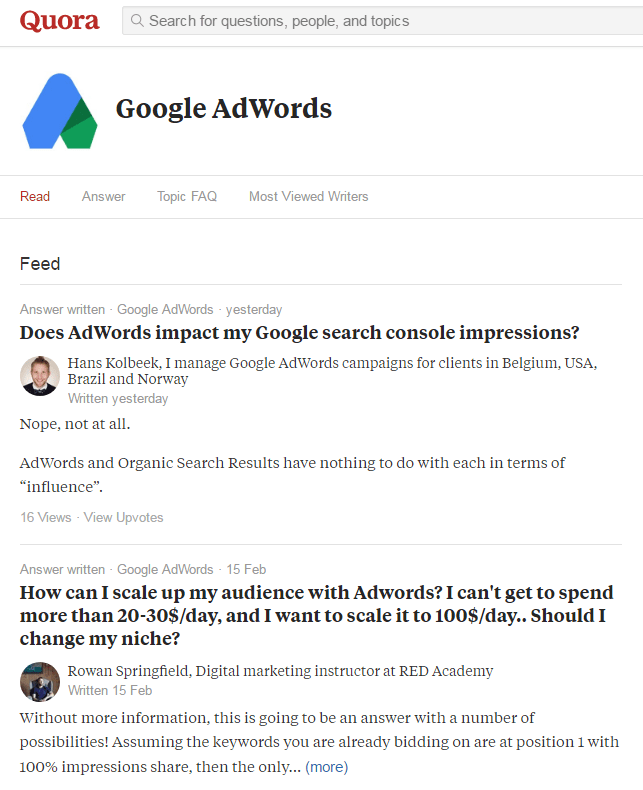
Back in the day there was a real issue with finding relevant content online. Now our problem is quite the opposite. There is SO much information and entertainment online that it can be hard to find quality content without getting lost in a sea of cat videos or “fake news.”
How can you avoid the content spam and find the truly valuable content to help you do your job more effectively, and to share with your audience? Content curation tools are a great place to start.
Table of contents
- What is content curation?
- What’s the difference between content marketing vs. content curation?
- Effective content creation tools
What is content curation?
Content curation is the process of sifting through all the various sources of content on the web to compile a list of the most informative or interesting pieces to then share with your target audience.
Content marketing vs. content curation
Content curation is not to be confused with content marketing; content curation is the process of sharing content from other sources rather than creating and promoting your own content.
For example, a social media marketer might curate the best content, or trending content, from other blogs in her industry and then share those articles from her own company’s Twitter account during the day.
Here are a few more ways that marketers can use content curation tools:
- Find the most shared and talked about stories in your industry to get ideas to blog about
- Find top sources to link to in the content you’re writing
- Get inspired by top-performing headlines
6 of the most effective content curation tools
While content curation can be fun, without tools to help, it can feel overwhelming. Luckily, there are lots of great content curation tools out there to help you out and save time!
Here are our top six favorites for you to try out.
#1: Buzzsumo
As a former content and social media marketer, Buzzsumo was a go-to resource of mine to find the most shareable content that resonated with the largest audience. While not your typical content curation tool, Buzzsumo allows you to type in any keyword or domain, and then provides an ordered list of the top shared content around that topic.
For example, when I type in the keyword “self-driving cars” the first article I see is from TechCrunch and has 62K social shares.
Buzzsumo also allows you to sort by date range, content type (guest post, infographics, videos, etc.), set alerts, view backlinks, follow certain authors, and more. Since these articles are being widely shared already, it is a good bet that they are going to resonate with your target audience.
#2: Pocket
Did you know that the average person spends 10 hours a day in front of a screen, according to a study done by Nielsen Company? A large chunk of that time is likely spent browsing the web or scrolling through your social media feeds.
During that screen time you’ll likely come across several relevant articles aligned with your content curation needs. Perhaps you bookmark these or make a mental note to go back to them, but they end up falling off of your radar. Pocket is the perfect tool to prevent this from happening.
Pocket is an app as well as an extension you can add to your browser that will then save articles to read or link to later in one organized location. Pocket allows you to easily tag articles to group relevant topics or themes together. It also includes robust search functionality to easily locate articles in your Pocket account.
#3: Feedly
If you were a fan of Google Reader, Feedly is a great alternative, since it serves as an RSS feed to curate content around specific keywords, topics, domains, etc. You can easily organize content into boards and flag content to read later. Feedly definitely takes the strain out of curating content manually.
While the free edition has support for up to 100 feeds, organization capabilities and the ability to share to various social platforms, the Pro (roughly $5/month) and Team ($18/month) packages offer unlimited feeds, a higher level of support, as well as more robust integrations. Try it for free, and then find the plan that best suits your content curation needs.
#4: Curata
Curata falls into the enterprise category of content curation tools for businesses with more sophisticated curation needs. The power of Curata lies behind the INSPIRE discover and recommendation engine that powers it to find truly customized and quality content to suit your specific needs, based off of the profile that you customize.
The only downfall of Curata is that it is not super wallet-friendly. There is no free version, and the lower plans start as high as $499/month, but hey – if you’ve got the budget and you’re looking for a very robust solution, then it may be the way to go for your complex curating needs. (You can use it for other tasks, like content management and reporting, too.)
#5: Quora
If you’re looking for content that answers niche questions around specific industry-related topics, Quora is the perfect solution. Quora is all about finding the answers to your specific questions with accuracy and efficiency. As their website reads, “Quora has content you will feel good about having read.”
Quora also works as a keyword research tool and is a great place to find question-based keywords to answer with your content.
#6: Scoop.it
Scoop.it is a powerful content creation tool that is also extremely pleasant to use. Scoop.it runs by crawling more than 35 million web pages every day and then organizing content into the most relevant topics. The tool makes it easy to filter, edit, and share out relevant content.
“With an interface that will remind you of Pinterest, Scoop.it aims to make finding relevant, shareable articles simple,” says Mike Templeman at Forbes.
Content curation made easy
These powerful tools are the perfect way to save you time, curate higher-quality content, increase audience engagement, and improve your content-sharing efforts with minimal effort on your end. As you can see there are plenty of wonderful options to choose from.












